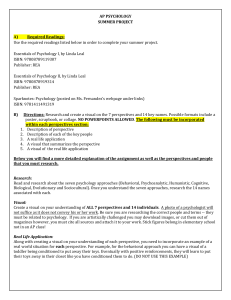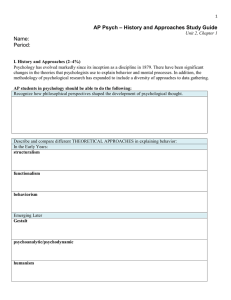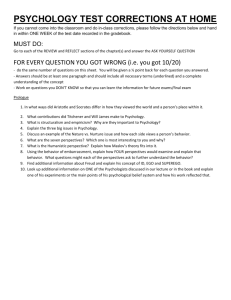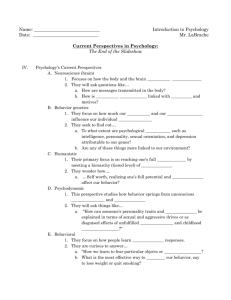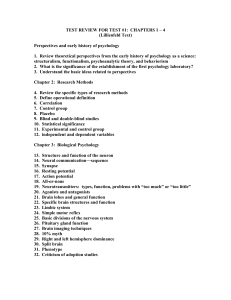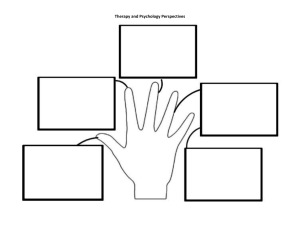Psychology Perspectives: Biological, Cognitive, Sociocultural & More
advertisement
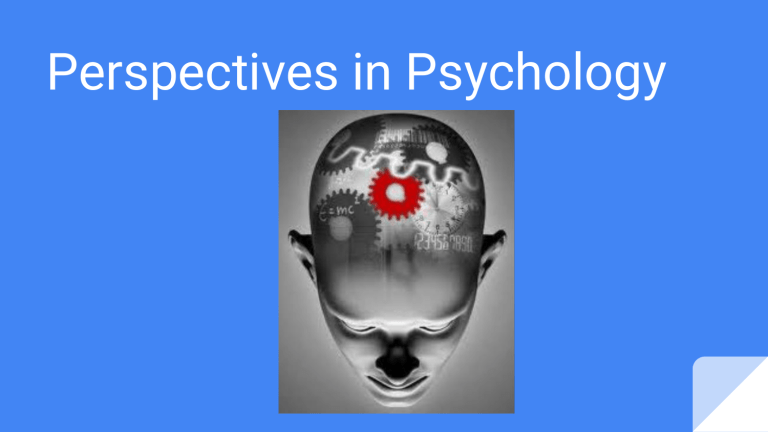
Perspectives in Psychology Major approaches to the study of presentday psychology BIOLOGICAL (Neuroscience) Examining behavior in terms of physical changes that take place in the body Brain chemistry, physiology SOCIOCULTURAL Behavior strongly influenced by rules and expectations of specific social groups Cultural Influence, social pressures HUMANISTIC Environment and human nature work together to mold behavior Inner world, sense of self, personal growth, internal strength, patient understanding, positive psychology Major approaches (perspectives or “lenses”) to the study of present-day psychology EVOLUTIONARY How the natural selection of traits promotes the perpetuation of one’s genes Evolution’s influence on behavioral tendencies-Darwin BEHAVIORAL Past associations and the environment are strongest influences on behavior Learned habits, reinforcement and consequences PSYCHOANALYTIC Behavior is controlled by impulses below the surface of consciousness Sex, aggression, conflict, guilt, The Unconscious COGNITIVE Behavior is a product of internal thought processes Thinking, logic Notes about perspectives ● ● ● ● ● Think of them as “lenses” through which you view issues in psychology No one perspective is better than another Many psychology use multiple perspectives to view issues Some psychologists focus more on some perspectives than others During year 1 of the IB course, we will focus on three: biological, sociocultural, and cognitive Ways To View Behavior - A Case Study ● Read Part A of the Approaches to Perspectives in Psychology document with a partner ● Note that they only include 5 of the 7 perspectives! ● Use the information in Part A to complete part B (Billy’s case study) ● When you are done, find one other pair and discuss your findings. What lense did you choose to analyze his situation? Why? Andrea Yates Murder Trial Guilty or Not Guilty? What perspective best explains her behavior? https://www.youtube.com/watch?v=zX30Kl2SVAM ● ● ● ● ● ● ● Cognitive Biological Social-Cultural Behavioral Psychoanalytic Humanistic Why not Evolutionary? Andrea Yates Murder Trial What perspective best explains her behavior? Cognitive: Mental functioning – she thought she was possessed by the devil and her children were not developing properly Biopsychological (neuroscience): biological defect, bipolar diagnosis, neurotransmitter problems, postpartum depression, or mood disorder that runs in the family Social-Cultural: Family dynamics, husband and extended family not supportive Behavioral: learned response, negative environmental influences Psychoanalytic: childhood conflicts or trauma results in unconscious forces prevailing Humanistic: Lost faith in self as a mother, hopelessness
